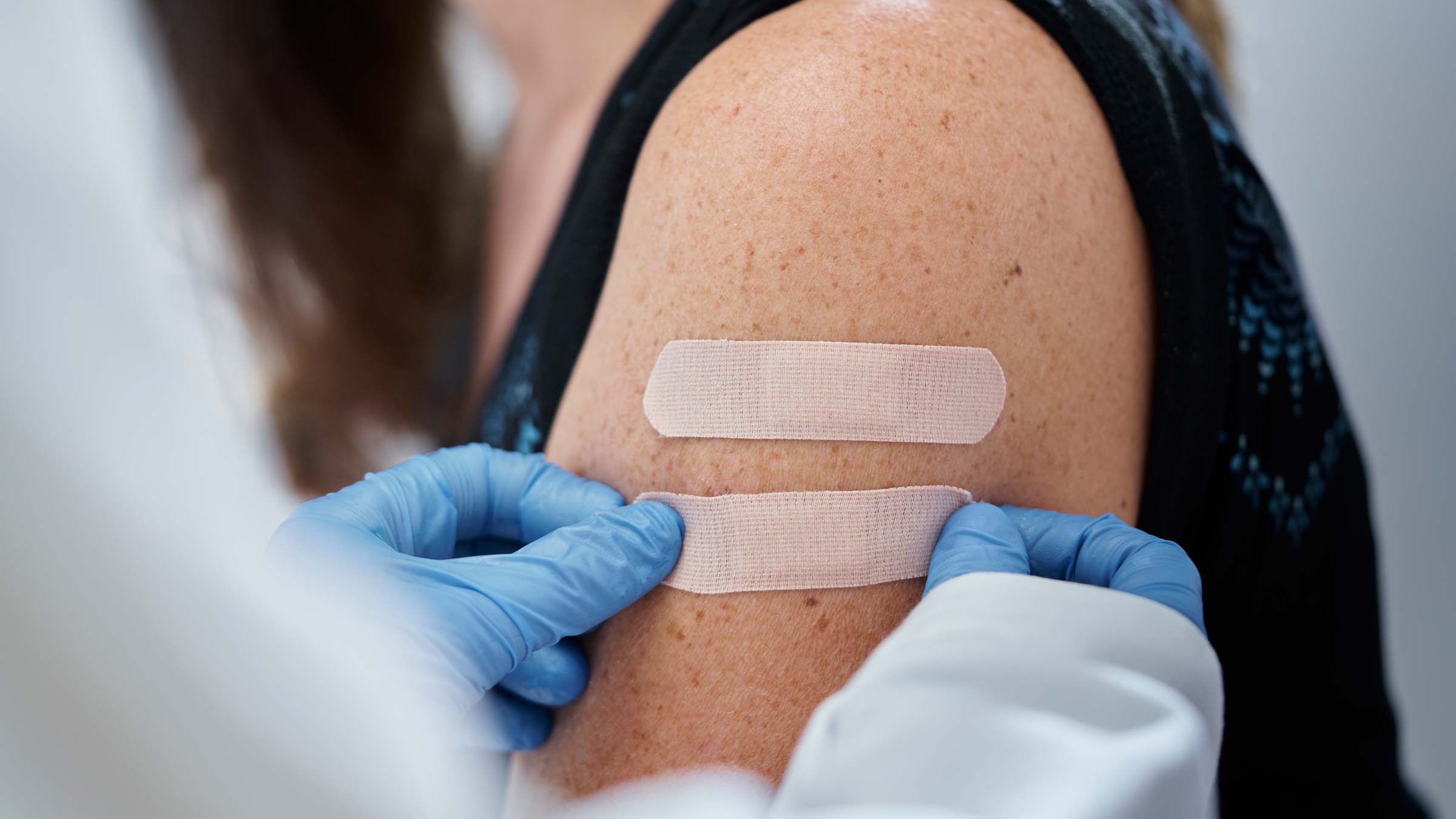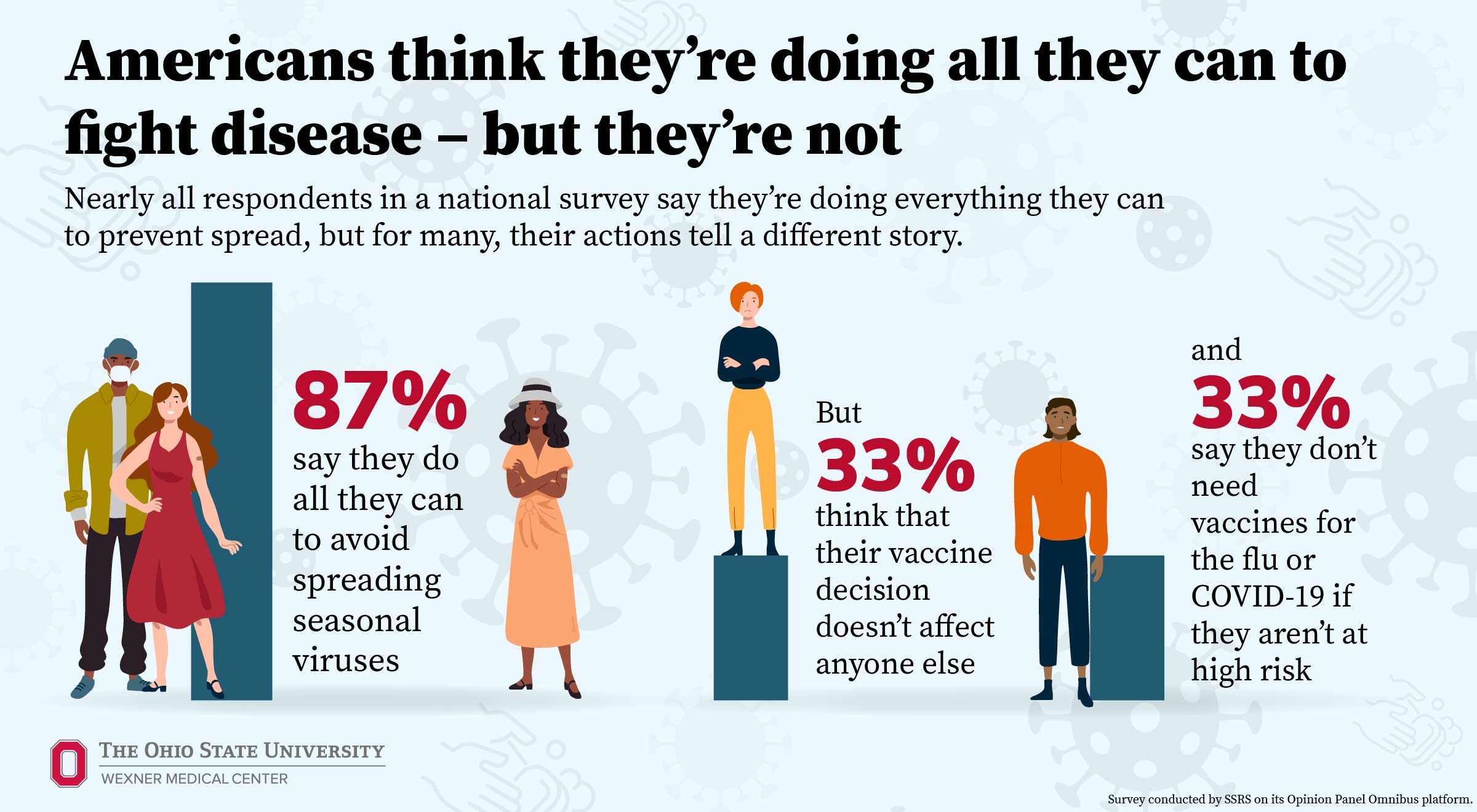
Some people dismiss the need to get a vaccine for the flu, COVID-19 or other respiratory illnesses because they don’t believe their risk of having severe symptoms is very high.
In fact, a new study confirms that even people who say they’re actively fighting the spread of such illnesses are not, in fact, choosing to get vaccinated against them.
In a national study commissioned by The Ohio State University, almost 9 in 10 people say they believe the flu and COVID-19 can lead to serious respiratory issues like pneumonia (88%) and that they are doing everything they can to avoid spreading those viruses (87%).
But a third of respondents said that their decision on whether to get a vaccine doesn’t have any effect on others.
As a pulmonologist who has seen many of our flu and COVID-19 patients in the intensive care unit, I would say that this position is more than just risky. It’s dangerous.

Vaccines can reduce virus spread
It is true that even fully vaccinated people can become infected with the flu and COVID-19 viruses and spread it to others.
However, fully vaccinated people are less likely to become infected and less likely to spread the virus to others on top of being significantly less likely to develop severe flu or COVID-19 symptoms that would require hospitalization.
Because vaccines reduce your likelihood to pass the virus to others, getting a vaccine can help protect people around you — especially those who do have underlying health conditions that would make it harder for them to recover from severe disease.
Getting immunized is important to being a good citizen
Getting vaccinated against respiratory illnesses is as much about protecting your community as it is about protecting yourself. Perhaps your immune system is able to handle a measles or flu diagnosis without threatening your life. But if you contracted one of those diseases and unintentionally passed it to your 90-year-old grandmother or to your newborn niece who’s too young to be vaccinated, would they be able to fight the virus as easily?
This is not just about you and your ability to fight disease in yourself. Help your brother. Your neighbor. Your coworker. As flu season settles upon us and a new COVID-19 vaccine is being released, it’s critical that you take the most important step you can to help control the spread of viruses. Get vaccinated.






